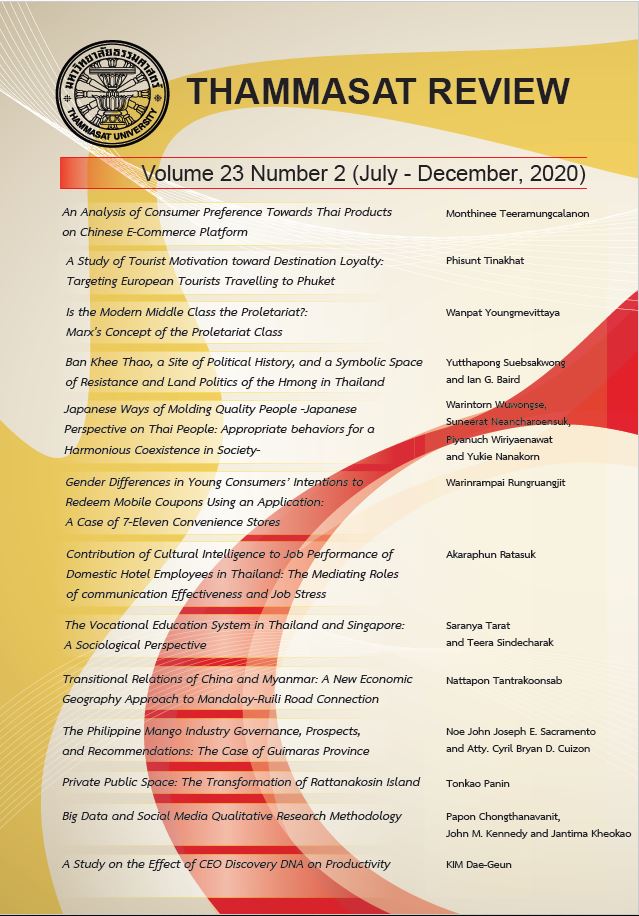Gender Differences in Young Consumers’ Intentions to Redeem Mobile Coupons Using an Application: A Case of 7-Eleven Convenience Stores
Keywords:
Quality people, Not disturbing people, Strict self-discipline, JapanAbstract
The purpose of this research is to examine 1) the factors influencing young consumer’s intentions to redeem coupons using the 7-Eleven M-coupon application and 2) how gender differentiates the intentions to redeem coupons using the 7- Eleven M-coupon application. The quantitative method was employed in this study. The data were obtained from 760 young consumers of which 380 were males and 380 were females. These participants downloaded and redeemed coupons using the 7-Eleven M-coupon application to participate in the survey. Structural Equation Modeling (SEM) analysis was carried out by utilizing AMOS. Gender serves as the moderating variable and is used to conduct a multi-group analysis. The results indicate that all of the antecedents have positively affected young consumer’s intentions to redeem coupons using the 7-Eleven M-coupon application. Performance expectancy was the most powerful antecedent of intentions to redeem coupons for male respondents. Perceived value was the second strongest factor of intentions to redeem coupons for male respondents. Effort expectancy was the third most important factor of intentions to redeem coupons for females.
Downloads
Published
How to Cite
Issue
Section
License
The opinions and ideas expressed in all submissions published in Thammasat Review are solely that of the author(s) and do not necessarily reflect that of the editors or the editorial board.
The copyright of all articles including all written content and illustrations belong to Thammasat Review. Any individuals or organisation wishing to publish, reproduce and distribute a particular manuscript must seek permission from the journal first.








